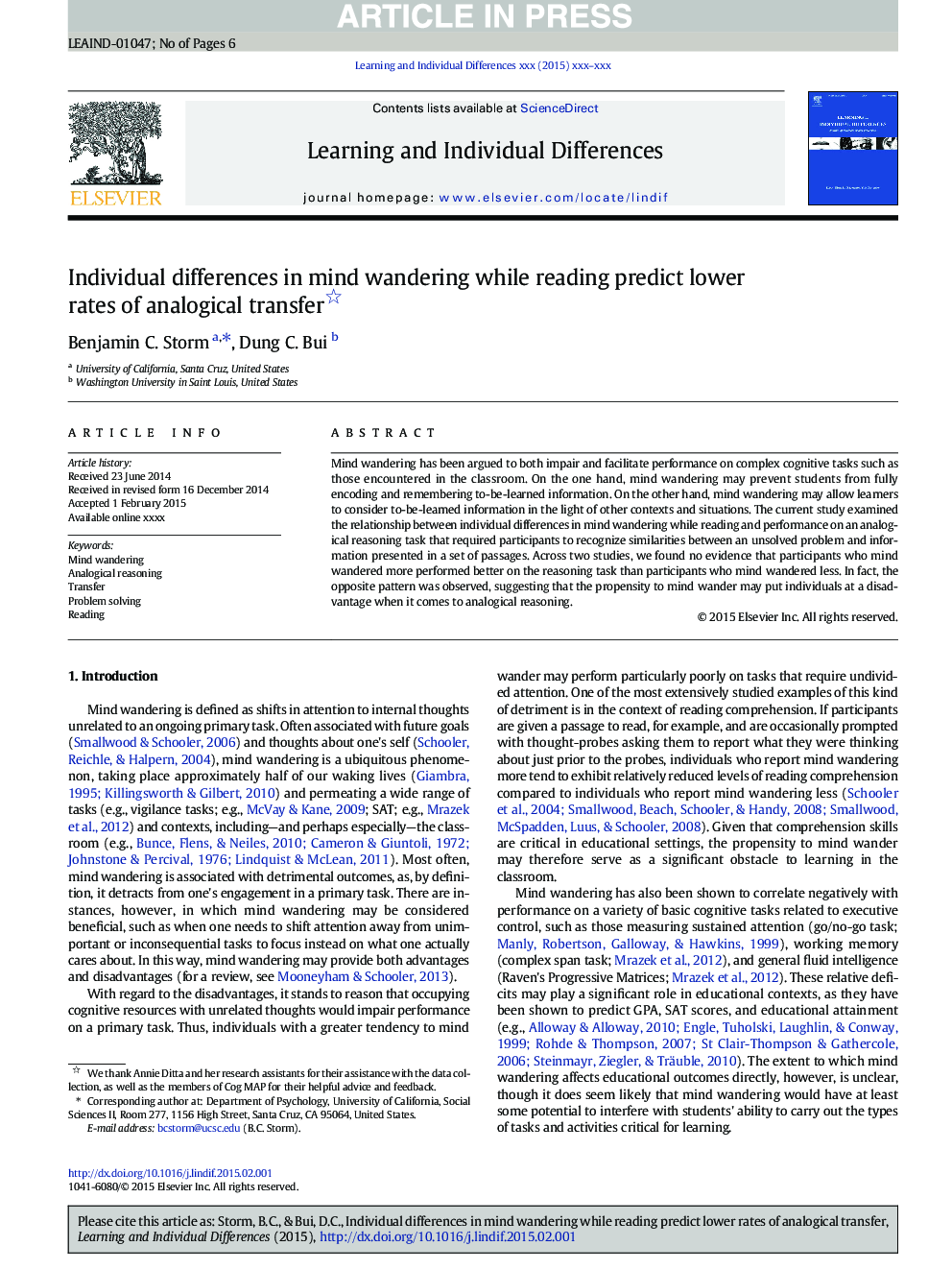| Article ID | Journal | Published Year | Pages | File Type |
|---|---|---|---|---|
| 4940142 | Learning and Individual Differences | 2016 | 6 Pages |
Abstract
Mind wandering has been argued to both impair and facilitate performance on complex cognitive tasks such as those encountered in the classroom. On the one hand, mind wandering may prevent students from fully encoding and remembering to-be-learned information. On the other hand, mind wandering may allow learners to consider to-be-learned information in the light of other contexts and situations. The current study examined the relationship between individual differences in mind wandering while reading and performance on an analogical reasoning task that required participants to recognize similarities between an unsolved problem and information presented in a set of passages. Across two studies, we found no evidence that participants who mind wandered more performed better on the reasoning task than participants who mind wandered less. In fact, the opposite pattern was observed, suggesting that the propensity to mind wander may put individuals at a disadvantage when it comes to analogical reasoning.
Related Topics
Social Sciences and Humanities
Psychology
Developmental and Educational Psychology
Authors
Benjamin C. Storm, Dung C. Bui,
